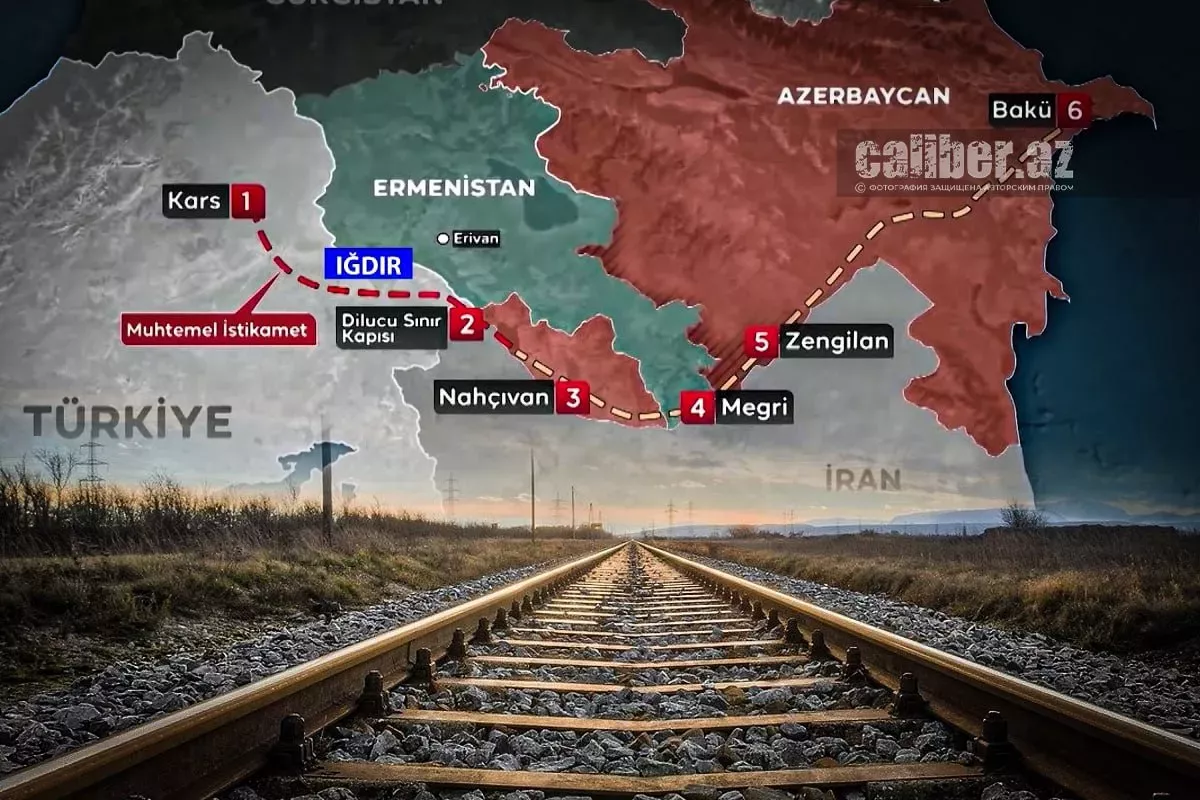Between isolation and integration The Armenian dilemma of the Zangezur Corridor
The Zangezur Corridor became one of the most discussed topics at the 3rd Shusha Global Media Forum during President of Azerbaijan Ilham Aliyev’s interaction with local and international media representatives. And understandably so, as this corridor is not merely a transport route—it is a strategic necessity that would provide direct connectivity between the western regions of Azerbaijan and the Nakhchivan Autonomous Republic via Armenia.
It is abundantly clear that, as stipulated in Point 9 of the Trilateral Statement of November 10, 2020, the corridor was supposed to be opened to ensure the free movement of citizens, vehicles, and goods. However, nearly five years have passed since the signing of that document, and the Armenian side continues to obstruct its implementation. This stance is already resulting in not only missed economic opportunities for Armenia, but also its deepening geopolitical isolation.

Indeed, according to preliminary estimates, the Zangezur Corridor will have a throughput capacity of up to 15 million tonnes of cargo per year. This will reduce transportation costs along the China–Europe route passing through Azerbaijan and ease the burden on the eastern segment of the Middle Corridor. The implementation of this project will connect Nakhchivan with the mainland of Azerbaijan, turning the country into a regional hub between East and West, North and South.
A number of foreign experts emphasise that the Zangezur Corridor could transform the South Caucasus into a major trade and logistics zone within 5 to 7 years. Azerbaijan would benefit from transit revenues, while Armenia could gain from transit fees, service provision, and infrastructure investment. It’s a classic “win-win” — provided that Yerevan adopts a pragmatic approach. But therein lies the problem: so far, Azerbaijan has not seen any rational steps from the Armenian leadership.
To be fair, there have been a few relatively sensible remarks from Prime Minister Nikol Pashinyan. He has, in particular, confirmed that Yerevan received a proposal from Washington regarding the management of a transport corridor between Armenian and Azerbaijani territories. He also noted that “border guards mainly stand on the border, not on the roads, although sometimes they do stand on roads.” This was his response to a question about whether Armenian border guards might be stationed along the road connecting mainland Azerbaijan with Nakhchivan through Armenia.

“Yes, Armenian border guards will be present on this road as part of Armenia’s sovereignty. There will be no direct contact with travellers, as biometric passports will be checked. However, if issues arise with them, this aspect will need to be reconsidered,” Pashinyan said at the time. He added that the proposal for managing the transport corridor — referring specifically to the Zangezur Corridor — does not contradict Armenian legislation. As examples of outsourcing, the prime minister cited Zvartnots Airport, the South Caucasus Railway (SCR), and the water supply system.
In other words, Armenia does not seem to oppose the Zangezur Corridor project in principle. Yet in practice, no tangible steps have been taken in this direction.
Meanwhile, experts and analysts are increasingly describing Armenia as a "dead end" in the South Caucasus. None of the major regional logistics arteries — whether the China–Europe route, the North–South Corridor, or the Trans-Caspian route — include Armenian territory. And this is not the fault of geography, but a consequence of Armenia’s confrontational policy and refusal to integrate.
Without a doubt, Armenia’s obstinacy regarding the Zangezur Corridor has effectively made it a hostage to its own geopolitical pride. The paradox is stark: a country with real potential becomes its own biggest obstacle. It is worth stressing that had Yerevan pursued peace back in the 1990s or 2000s — by returning the 20% of Azerbaijani territory it was occupying, as required under international law — and not ignored UN Security Council resolutions for nearly 30 years, the country could have avoided the collapse it later experienced.
Perhaps this realisation is what led Pashinyan, not long ago, to publicly acknowledge Azerbaijan’s territorial integrity — even expressing regret that this recognition hadn’t come sooner. In effect, this moment of contrition marked a final verdict on the irrational policies pursued not only by Pashinyan himself, but also by those who led Armenia before him.
However, despite all these lessons, Yerevan is once again trying to delay the fulfilment of its commitments—particularly regarding the Zangezur Corridor. Armenia is banking on a strategy of "media-simulated diplomacy," hoping that time and the support of certain Western actors will allow it to sidestep its obligations. But as history shows, such an approach only leads to renewed isolation and lost opportunities for development.
If Armenia continues to block the opening of the corridor, Azerbaijan may pursue alternative routes through Iran — discussions are already underway to construct a railway line from Astara to Nakhchivan. Azerbaijan could also expand maritime transport across the Caspian Sea, linking Baku with Turkmenbashi and onward to routes leading to China. In addition, the Azerbaijani state may further deepen its strategic partnership with Türkiye by utilising the Kars–Nakhchivan railway line.

As we can see, Azerbaijan has multiple options at its disposal and is no longer willing to wait indefinitely for Armenia to take concrete steps towards implementing the Zangezur Corridor project. Nevertheless, Baku still hopes for rationality from the Armenian leadership. After all, this is an infrastructure initiative that would benefit all regional stakeholders — if only Armenia chooses the path of peace and cooperation, rather than confrontation and self-imposed isolation.
Today, Yerevan stands at a historical crossroads. It has the opportunity to become part of a regional success story — or, conversely, once again fall hostage to its own illusions. And, as is well known, time works against those who fear change.








